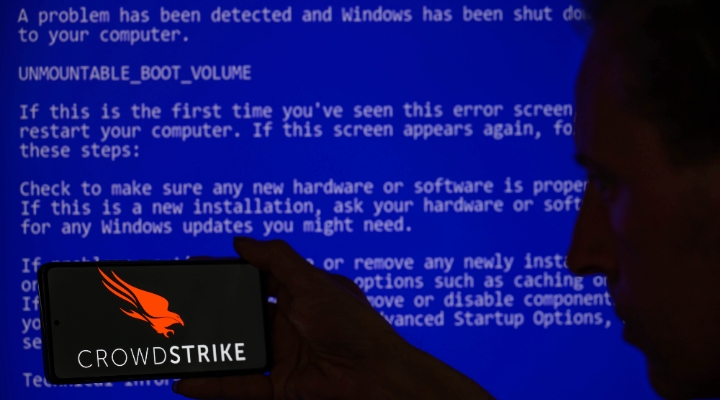
Aaron Fowles’s main financial goal is to get onto the properly ladder. In his early 30s, with a partner and an 18-month old daughter, it’s not surprising that buying a family home is a current priority.
And while Aaron has one eye on longer-term goals such as building a decent pension pot for retirement, the family’s current needs are top of the agenda for the moment.
Aaron, who works as a data engineer in Somerset says: “I’d like to have enough to see me through retirement, and also to ensure there are sufficient funds to pay for additional expenditure when we need it, such as a decent holiday.”
Why I Invested in Tech Stocks
Aaron first started investing 2009, at the height of the financial crisis, but cashed out in 2011 when he went back to university. He started up again 2016, primarily as a way to grow his money more quickly than he could through the low rates on offer from high street cash savings accounts.
The technology sector caught his eye. “I could see the transformative power of technology on modern life and was drawn to a few companies, which I thought would grow to be giants in their industries by pioneering and successfully monetising new technology,” he explains.
At the time his job involved working with artificial intelligence and machine learning, and he was well aware of the benefits that such innovations could bring. In 2016, he split his money between four stocks: Amazon (AMZN), Alphabet (GOOGL) — the listed name for Google — Tesla (TSLA) and Ocado (OCDC).
They have proved lucrative investments – the value of each of the shares has at least doubled since he first invested.
Amazon has a three-star rating from Morningstar. Analysts say: “Amazon's disruption of the retail industry is well documented, but the company continues to find ways to evolve its business model. Its operational efficiency, network effect, and a brand intangible asset give its marketplaces sustainable competitive advantages that few, if any, traditional retailers can match.”
The company has one of the widest economic moats in the consumer sector and, as a result, analysts expect the company “is likely to reshape retail, digital media, enterprise software, and other categories for years to come”.
Ocado – the only UK stock among Aaron’s investments - has a two-star rating. The business has grown from humble beginnings to be one of the first niche online grocers. Today, Morningstar describes the company as “a technology powerhouse and online retail disrupter”. It adds: “We believe that Ocado Smart Platform, or OSP, is well positioned to become one of the most sought-after online grocery fulfilment solutions for large brick-and-mortar grocers as online penetration increases in developed markets.”
I Regret Diversifying my Portfolio
With all his wealth riding on the fortunes of the tech sector, Aaron has more recently tried to diversify his investments into other areas. He says: “Instead of increasing up my stakes in these initial investments I started buying small holdings in what I understood were ‘safer’ shares and funds.”
As a result, Aaron invested around £10,000 in investments spanning a range of sectors including finance, retail, mining and telecoms.
A number of these have, however, not delivered anywhere near the returns of his technology holdings while others have been plain “awful”. He points to investments in Aviva (AV.), BT (BT.A), Marks & Spencer Group (MKS) and Glencore (GLEN) as some of his poorest performance. Aaron says: “My investments in these stocks are thousands of pounds down, whereas my initial investments are, in some cases doubling, in value every year or so.”
The first three of these companies have five-star ratings from Morningstar, reflecting that their share prices are significantly below a fair value estimate for the company. Glencore has a four-star rating, indicating it too is trading below its perceived market value.
When it comes to the insurance giant Aviva, Morningstar says: “As a solid middle-of-the-road composite insurer, Aviva has had its fair share of problems and these have been spread across leverage, a sprawling business portfolio, and loose controls that have led to regulatory and consumer action group investigations.” While some of these issues have been addressed, analysts point out that the company has no economic moat and a high uncertainty rating.
Troubled retailer Marks & Spencer, meanwhile, has seen its share price suffer long-term decline — indeed, it is currently trading below the share prices seen at the end of the 1990s. According to Morningstar data, its shares have fallen from 531p on June 1, 2015 to just 107p on June 15, 2020.
Investing for the Long-Term
But Aaron is sticking with most of his holdings for the time being; the Covid-19 crisis and subsequent stock market volatility are not the best environment in which to be selling shares, he says. He says: “I believe most of my investments, and the tech holdings in particular, will come out stronger on the other side of the crisis. I invested in these companies because of their long-term potential, so I'm not too worried.”
But with buying a family home on his mind, Aaron is refraining from investing more into the market at present. “I’ve decided not to buy anything this year,” he says. “Normally I would invest at least £5,000 to £10,000 a year, mostly in tech shares, but I’m building up my cash reserves to take advantage of any slump in the housing market.”
Aaron’s savings are split across three main pots, the first of which is a savings account for his house deposit, kept in a cash lifetime Isa. He also holds a stocks and shares Isa with AJ Bell, which he calls his “life fund” and is mainly invested in individual shares with the aim of delivering some extra money for holidays.
Finally, he also invests in a self-invested personal pension (Sipp) in order to save for his retirement. “The split between these pots is fairly equal at the moment but I’ll be cashing out of the house deposit fund soon,” he explains. “At that point I’ll use both the Lifetime Isa and Sipp to invest for retirement.”
Alongside this he says he also has small amounts invested in alternative, riskier assets such as cryptocurrency and Innovative Finance Isa, through which individuals can invest in peer-to-peer loans.



























